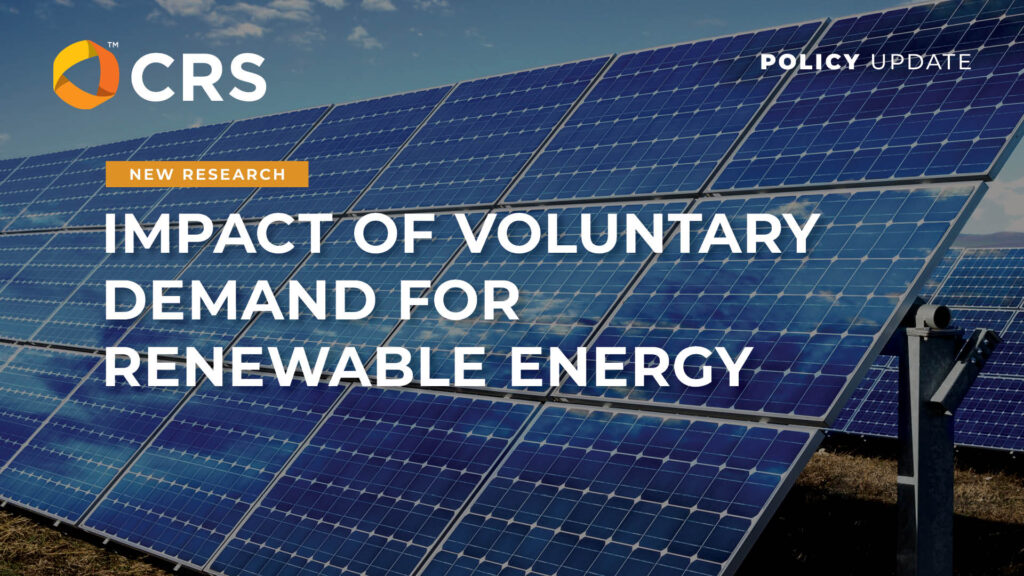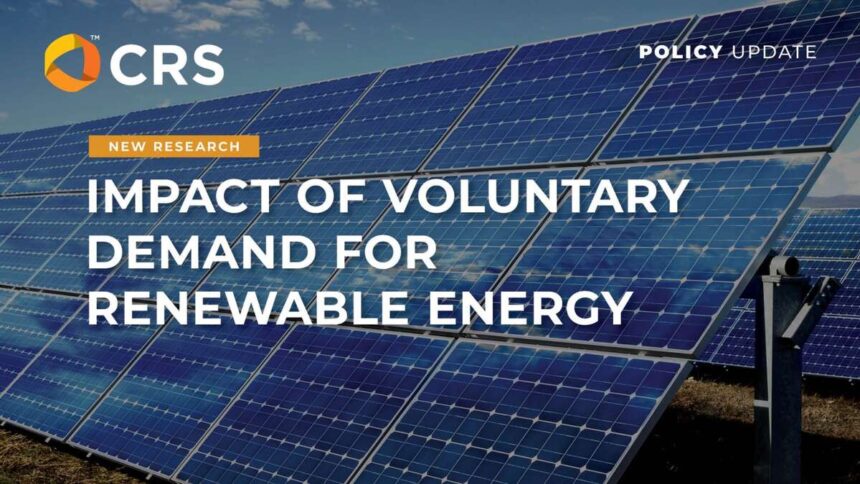
Voluntary buyers are increasingly interested in the impact of their REC procurement strategies on the deployment of new renewable energy projects. The impact of voluntary REC markets is also a key focus in shaping regulations and standards for how organizations track and report greenhouse gas emissions from purchased electricity.
New research from Dr. Eric O’Shaughnessy provides critical insights from renewable energy project developers, investors, power producers, buyer organizations, and subject matter experts. They suggest that voluntary RECs play an important role in renewable energy deployment decisions and that REC impacts are more complex than what is often portrayed in simplified narratives in the literature.
A summary of the research’s findings is currently going through the peer review process and a working draft is now available. Though the article is subject to change during peer review, the working version summarizes six key themes.
- Voluntary RECs drive renewable energy deployment
- REC revenues are critical for deployment
- REC prices are a poor proxy of impact
- Voluntary demand for RECs underpins voluntary demand for renewable power
- Voluntary demand is not easily replaced
- Unbundled RECs have indirect impacts on deployment
These qualitative insights reveal some of the blind spots and limitations of previous research and highlight that REC impacts cannot be reduced to simple financial metrics or categories like “bundled” versus “unbundled” transactions. Their effects vary based on different factors across markets and time, but overall, voluntary REC markets provide critical benefits for renewable energy project deployment, and are an important part of the broader context of climate solutions for the electricity sector that itself is more effective than any one solution in isolation. Programs that recognize these complexities and impacts would benefit voluntary buyers.
In addition, previous articles by Dr. O’Shaughnessy (unrelated to the one above) explore the apparent contradiction between this perceived importance of RECs among renewable energy developers and findings from other researchers who use financial analysis and energy systems modeling to analyze the impacts of RECs.
In Categorical Claims about Voluntary Renewable Energy Actions are Not Supported by Categorical Evidence (Progress In Energy, 9 October 2024), Dr. O’Shaughnessy examines the evidence behind narratives that broad classes of RECs are not impactful. As the title suggests, he argues that such broad claims overstate the underlying evidence, which in fact, pertains to specific contexts that reflect exceptional market circumstances.
In Recognition and Evaluation in Voluntary Renewable Energy Markets (Joule, 17 July 2024), Dr. O’Shaughnessy notes that apparent contradictions in the perceived impacts of RECs may stem from varying perspectives on the concept of impact. He argues that the theoretical standards of “impact” often used in academic studies should only be applied to a relatively small group of buyers with relatively deep resources and procurement expertise.
Future work from Dr. O’Shaughnessy will further explore the limitations of financial analysis and how research related to REC market impact can be improved to produce more accurate and useful results that reflect and inform real-world market experience.



